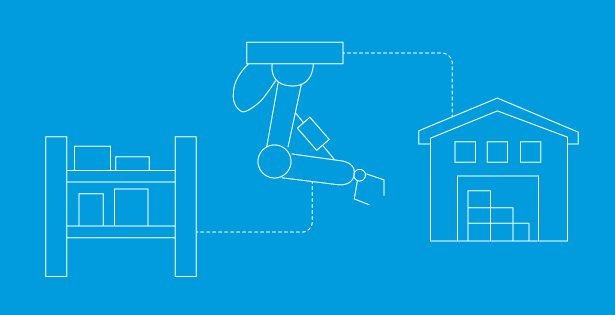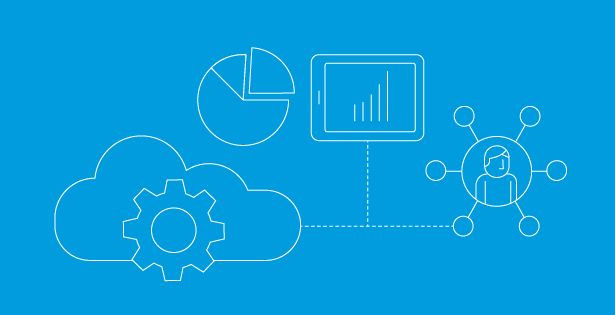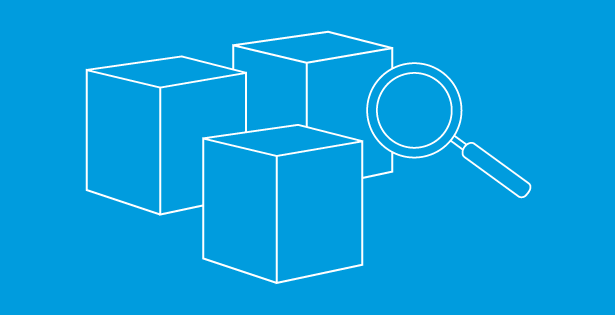Introduction
In today’s digital age, the importance of data integrity, availability and security are critical for business. For Indian companies leveraging different ERP platforms, effective data backup is critical for ensuring business continuity, safeguarding sensitive information, maintaining operational efficiency, maintaining trust with customers and ensuring compliance with regulations. With customers using Oracle NetSuite your data is completely replicated, backed up and available whenever and wherever you need it. Multiple levels of redundancy are provided to ensure continuous access to your data, replication and synchronization across data centers providing full disaster recovery. This blog explores the significance of India entity data backup and the strategies that can be employed by Indian enterprises using Oracle NetSuite based on the recent changes in regulations.
In 2023, the Indian Ministry of Corporate Affairs (MCA) implemented changes to its accounting regulations, requiring companies using accounting software to maintain a daily backup of their electronic books of accounts. This regulation ensures that financial records are stored on servers physically located in India. The main purpose is to make sure that authorities can access records for audits and investigations, even if the company uses cloud-based systems hosted outside the country. This would be more significant for financial institutions, NBFC’s, and those directly or indirectly involved in capital markets.
Key requirements include:
- Daily Backups: Companies must back up all financial records daily in an electronic format.
- Local Servers: Backups must be stored on servers located within India.
- Access for Audits: Companies must be able to provide authorities access to these backups upon request.
- Audit Trails: Accounting software must have an audit trail capability to track all changes made to records.
Non-compliance with these rules could result in penalties, including fines. For companies using NetSuite, it becomes important to take care ensuring that their data is easily accessible within India, or the data is stored on Indian servers that will enable authorities to easily access these financial records.
During 2024 Oracle SuiteWorld, NetSuite announced that they would be coming up with a data center in India in 2025. With this upcoming data center in India this issue could be resolved, however companies can find other approaches until there is a data center in India. It is great to note that Oracle will have overall 36 data centers in 17 Oracle Cloud Infrastructure regions globally by 2025 including one in India and Brazil.
Indian companies could adopt a multi-layered approach for data backup when utilizing ERP software’s. Firstly, regular automated backups could be implemented to ensure that data is consistently saved without human intervention. This approach minimizes the risk of losing vital business information and promotes seamless recovery in the event of data loss especially for Indian entities.
Secondly, backing up data from NetSuite’s could be helpful to meet the statutory requirements. With NetSuite providing options for exporting data, companies can take advantage of these features to create periodic snapshots of their data. These snapshots can serve as essential recovery points, allowing for quick restoration if needed. Storing such data locally can enable authorities to access them easily.
Furthermore, off-site data storage backups serve as a protective layer. It is recommended for Indian companies to maintain additional copies of their NetSuite data in secure external locations or cloud storage solutions or as local data center physically located in India. Such practices not only cushion against any disasters but also comply with regulations that may require data redundancy.
Few key points to consider regarding local data storage centers for businesses in India:
- Data Protection Bill: The Personal Data Protection Bill, which is expected to come into effect soon, lays down the framework for personal data collection, storage, and processing in India. It mandates that certain categories of personal data must be stored in India.
- Local Data Storage Requirement: Organizations may be required to maintain a version of certain sensitive personal data within India. This aligns with the mandate to ensure that Indian citizens’ data is subject to Indian jurisdiction.
- Compliance: Businesses engaging in data processing operations must comply with applicable laws, including:
- The Information Technology Act, 2000 (specifically the rules related to data protection).
- The rules framed under the IT Act, including the Information Technology (Reasonable Security Practices and Procedures and Sensitive Personal Data or Information) Rules, 2011.
- Data Localization: Some sectors, such as financial services, telecommunications, and government, have specific localization requirements. For instance, the Reserve Bank of India mandates that all data related to payment systems should be stored within India.
- Cloud Services: Companies may utilize local cloud service providers to ensure compliance with data localization requirements. Providers like AWS, Google Cloud, Microsoft Azure, and local players like Tata Communications and NTT offer data center services compliant with Indian regulations. In case of NetSuite, Oracle leverages Oracle cloud infrastructure across 17 OCI regions across the globe.
NetSuite Backup Approaches for exporting India entity data:
1. Manual Export
- Go to: Setup > Import/Export > Full CSV Export.
- This option allows you to export most of the data from NetSuite.
- The export will be provided in a zip file containing various data types.
The Full CSV Export option in NetSuite for India subsidiary export data as CSV files. This option exports the following data:
- Accounting Lists
- Classes
- Contacts
- Customers
- Departments
- Employees
- Expense Categories
- Items
- Memorized Transactions
- Notes
- Other Names
- Partners
- Saved Reports (that users own – India Subsidiary)
- Ship Items
- Solutions
- Tasks
- Topics
- Transaction Detail Report
- Vendors
It is recommended to validate these standard views and also include any of your customization related non-financial and financial data for desired backups. As an option create and customize report based on India backup requirement and export it on daily basis to your local servers.

2. Export Data using Saved search feature from NetSuite by scheduling email
Identify India subsidiary related data to be migrated for backup and create schedule saved searches and emails daily.
Saved Search creation:
One could create multiple saved searches for India subsidiary and pull up related data. Once these saved searches are created, we can schedule emails from searches on daily basis. These could be stored on local system or servers located in India to meet the regulatory requirements.
Email should be triggered to the pre-defined user at a scheduled time.
3. NetSuite manual saved search export
Alternatively, you could also export these Saved Searches manually and save them in desired format like .CSV or .xls formats that can be stored in your local servers.
4. NetSuite saved search export to file cabinet using SuiteScripts
By leveraging SuiteScripts, users can programmatically export saved search results into the file cabinet, enhancing efficiency and data governance.
To save a NetSuite saved search to the file cabinet, follow these key steps:
- Identify the Saved Search: Determine which saved search you wish to export.
- Create a SuiteScript: Develop a SuiteScript that references the saved search, retrieves the data, formats it as necessary, and then writes the results to a file in the file cabinet.
- Schedule or Deploy the Script: Scripts can be executed on-demand or scheduled to run at specific intervals to automate the export process.
- User can manually download the files on daily basis from file cabinet or third-party integration can help to move data from file cabinet to another local server which is stored in India.
5. NetSuite saved search data extraction through API and SOAP web services
NetSuite’s SuiteTalk SOAP web services API and RESTlet API enable automated data retrieval, integration with other systems, and custom reporting by accessing saved searches. This allows businesses to use real-time data in other applications, including business intelligence tools, and perform daily backups based on specific criteria. SOAP, a protocol utilizing XML for structured information exchange, facilitates efficient communication between systems, allowing NetSuite to integrate and store data externally. The process involves establishing a connection using credentials like account ID and role ID, enabling access to various records (e.g., customer info, sales orders). Automating data extraction with SOAP improves accuracy and reduces manual errors. This way the extracted data can be stored locally.
6. Data extraction using SOAP web services
NetSuite data extraction using SOAP web services involves leveraging the SuiteTalk API, which allows users to access and retrieve data stored in NetSuite. SOAP (Simple Object Access Protocol) uses XML for communication between systems in a structured format. Here’s an outline of the process:
- Establish Connection: First, a connection is set up through a web service application. Credentials such as the account ID, password, and role ID are required to authenticate the connection.
- Utilizing SuiteTalk: SuiteTalk is the API provided by NetSuite that facilitates these interactions. Once the connection is established, SuiteTalk allows users to make requests for specific records, such as customer data, sales orders, financial data, inventory, etc.
- Automated Data Retrieval: SOAP web services can automate the retrieval of information, which reduces manual data entry and improves data accuracy. This automation supports system integrations and can be used for data backups or custom reporting.
- Real-Time Access: The SOAP API enables real-time data extraction, allowing businesses to use this data in external applications, including business intelligence tools.
- Structured Data Handling: Since SOAP uses XML, data is handled in a structured and standardized manner, ensuring compatibility between different systems.
NetSuite’s SOAP API is widely used for integrating NetSuite data with other systems and for automating processes that involve extracting business-critical data.
7. Data extraction using 3rd party tools
For Indian organizations using NetSuite, leveraging third-party tools can significantly enhance data management and backup capabilities. Below are some notable tools only for reference that facilitate data extraction from NetSuite:
- Skyvia: As a cloud data integration service, Skyvia allows users to perform data extraction from NetSuite with ease. It provides various options for data transfer, backup, and queries, ensuring that users have the flexibility to manage their data according to specific business requirements. Skyvia is a good tool to backup NetSuite data. One could leverage daily automated backup that’s easy to setup to backup anytime manually as it provides easy backup configuration.
- Celigo: Celigo’s Integrator.io platform provides seamless integration between NetSuite and various third-party applications. It offers tools for extracting, transforming, and loading (ETL) data, allowing users to automate data workflows without extensive coding knowledge. One can use integrator.io to create saved searches for exporting data from NetSuite. You can also used scheduled exports to run exports on a scheduled basis and store them in local servers.
- Hevo Data: Hevo Data is a robust, no-code data pipeline platform that enables users to effortlessly extract data from NetSuite and load it into data warehouses for analysis. Its user-friendly interface and automated processes could make it an ideal choice for organizations seeking to streamline their data integration efforts. Hevo uses the SuiteTalk SOAP web services platform that uses an XML based API to replicate the data present in your NetSuite account. These can be extracted and stored in local system.

 RSMUS.com
RSMUS.com



